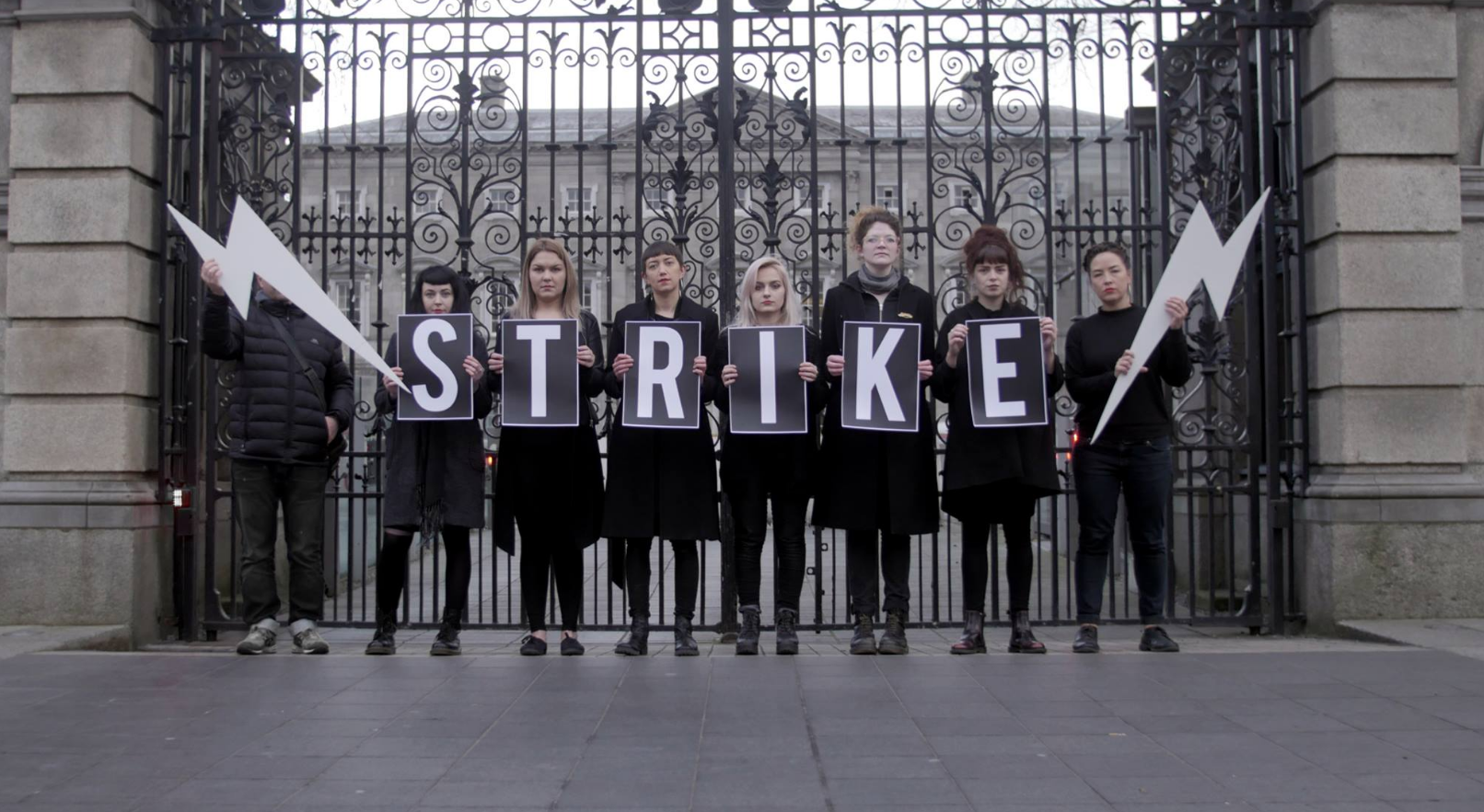In case after 108 International Women’s Days, you thought you’d seen the back of worldwide gender inequality, you are mistaken. The #IWD2017 twitter storm carried with it Anne Hathaway’s UN speech calling for paid parental leave, and British female MPs encouraged other women to get into politics, two of the many worldwide efforts to celebrate the achievements of women throughout history and the demands to balance the gender scales. It should also be noted that the 8th March 2017 was the day of Strike 4 Repeal, which marked the the continued pro-choice struggle on abortion cases for women in Ireland, and was by no means a drop in the ocean.
The Strike 4 Repeal movement saw demonstrations across over 50 different locations in Ireland, with 10,000 at O’Donnell Bridge in Dublin, and other protests worldwide. Demonstrators were demanding revocation of the Eighth Amendment of the Constitution of Ireland (Article 40.3.3), which recognises the right to life of an unborn child, and almost absolutely denies women the right to an abortion, an offence punishable of up to fourteen years in prison. It was therefore fitting that its first marches took place on 8th March this year.
Strike 4 Repeal is part of the on-going Repeal the Eighth movement in Ireland run by the pro-choice groups Abortion Rights Campaign and Coalition to Repeal the Eighth amongst others, with support from medics and legal academics. A campaign to repeal Article 40.3.3 first came to light following the X Case of 1992. A fourteen year old rape victim, and Irish citizen anonymously referred to as ‘X,’ was prevented from seeking an abortion in the UK by the Attorney General who sought an injunction under this article. This was overturned in court by a four to one majority, however the case was rendered moot, as the victim miscarried soon after the court ruling. There have been three unsuccessful referendums of Article 40.3.3 since this case, and it remained inoperative for over twenty years until the death of Savita Halappanavar in 2012, when #RepealTheEighth came to the Twitter stage.

Savita’s harrowing pro-life case gained worldwide publicity and brought to the foreground the floors of a constitution that had failed its protectee. Savita died in October 2012 at University Hospital Galway due to complications of septic miscarriage 17 weeks into her pregnancy, which didn’t qualify her for an abortion. Ireland in recent years has been awash with cases like Savita’s whereby fatal condition of the foetus doesn’t permit women to carry out abortions.
Where the Strike 4 Repeal marches lacked in global media coverage this year, they don’t lack in national support. A poll taken by the Irish Times in October 2016 revealed that 18% of citizens were against its repeal, compared to a majority 55% in favour that predominantly comprised younger and more liberal citizens from Dublin.
Irish Political parties (Labour, Workers’, Green and Sinn Féin) show good intentions in revoking Ireland’s traditional pro-life laws that are in line with its historically Christian conventions, committing to a referendum in the elections of last year to name one example. Furthermore, the government set up The Citizens’ Assembly last year to succeed the Constitutional Convention of 2012, tackling political cases including abortion, to put forward for debate in Irish Parliament. Their fourth meeting met a few days before the march with an attendance of a hundred, who listened to hard-hitting stories from families affected by the Eighth Amendment to the Constitution.
Nevertheless, former Northern Irish resident and student Fiona Holland, questions the ability for permanent change in the age-old conventions set out in Ireland. ‘Religion still has a stronghold and until that changes, perhaps issues that allow people to think and decide freely for themselves won’t be encouraged because of the Church, be it Catholic or Protestant.’
Leah Morgan from The Irish Times and Solicitors’ Apprentice Debating Society of Ireland has similar reservations. She sees resolution only in the election of politicians that are unequivocally dedicated to ‘real’ gender-equality. Speaking on the Strike 4 Repeal march, she states, ‘we must not let this day of action fill us with the false catharsis of protest, and lead us to sit comfortably on our trending-hashtag laurels while real policy is being decided elsewhere.’
Contrary to common pro-choice opinion, journalist and march attendee Larissa Nolan explains, ‘I’m pro-life and in Ireland if you say that openly, you’re a social pariah’ and that the pro-choice movement is becoming ‘increasingly militant.’
Naturally, opinion on this highly contested topic is varied, however it is evident that Ireland appears ready and willing for change as the demonstrations and devastating results of pro-life cases have proved thus far. Ireland requires leadership to see women safely through antiquated tribulations through modern times, and it is the ongoing struggles of these women that should be remembered today, and associated with this year efforts on International Women’s Day. With any luck, in its upcoming annual celebrations, Ireland’s pro-choice struggle won’t require the international recognition from men and women that it deserves today.
Aimee Churchouse
(Image courtesy of The Independent)

